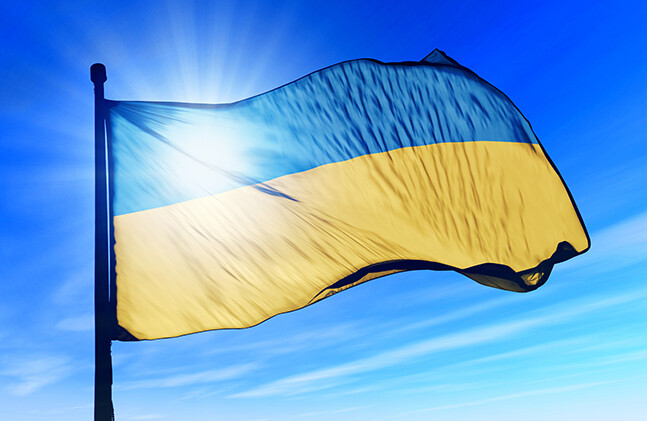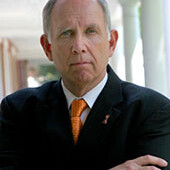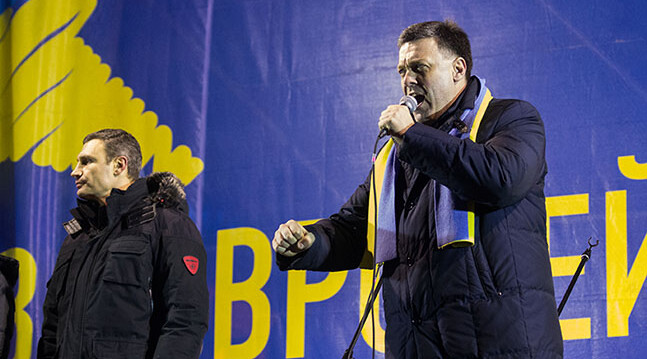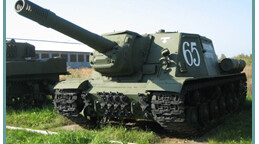Russian President Vladimir Putin's invasion of Ukraine reflects neither strategic wisdom nor military strength. In fact, it reflects just the opposite. Putin invested over $50 billion and significant personal capital on the Sochi Olympics and the upcoming G8 Summit. That has now been squandered. It was clearly humiliating for Putin to watch as the Ukrainian president he had strongly supported, if not hand-picked, was forced to flee Kiev by a popular uprising that was driven by opposition to closer Ukrainian relations with Russia at the expense of closer ties to Europe.
Most of this drama occurred while the Olympic torch was still burning in Sochi, forcing Putin to wait until the closing ceremony before sending troops into Crimea. Russian units entered Crimea like gangsters, with unit markings removed from vehicles and soldier's insignia covered. This was a cynical and amateurish effort to conceal who they actually were. This may have been, as some have suggested, an attempt at a "stealth" invasion, but it failed to demonstrate the operational prowess of a strong capable military. Many have been quick to describe the Obama administration's actions as being weak and indecisive, implicitly suggesting we should loudly rattle the military saber. But for the same reasons that the Bush administration did not resort to military force when Russia invaded Georgia in 2008, sending major American forces today is neither feasible nor desirable. There are other more measured steps that can be taken, and many already have been implemented.
President Obama and Secretary of State John Kerry are moving to isolate Russia diplomatically. Hopefully, this will encourage Moscow to consider the costs of its current course without forestalling cooperation with the West on issues of mutual interest such as Syria and Iran. Financial and economic pressures can also be brought to bear that will have real personal consequences for Putin and the oligarchs who control the only industry in Russia that matters—oil and natural gas. The challenge of such steps inevitably is that they require the concurrence of many players—each having different interests. They will take time to be felt, and must be interpreted correctly by actors, such as Putin, who appear at times to have a limited capacity for realistic analysis and an exaggerated sense of their own power. This is a troublesome combination of qualities.
The key ingredient in all of this is time. Ukraine must have time to stabilize its domestic situation, the West must have time to convince Putin that naked aggression against a sovereign state is unacceptable, and Putin must have time to conclude that further brazen steps will have great costs and few benefits.
On the diplomatic side this means that the United States and Europe must first and foremost provide the necessary political and economic assistance the new Ukrainian government desperately needs. We must also stand firm in convincing Putin that Ukraine, although an area of legitimate Russian interest both historically and economically, is a separate state. It must be allowed to articulate an appropriate balance between its Eastern and Western interests. Clearly, the final status of Crimea will be critical in this effort. It cannot be ceded away and simply annexed by the Russian Federation. Russia may have invaded Ukraine, but in doing so it may have united it in a firmer commitment to look Westward. Efforts by European nations to create a contact group quickly for direct negotiations between Russia and Ukraine could be extremely valuable in this effort. This might also provide Mr. Putin a face-saving way to reduce tensions.
On the military side, Putin needs to be convinced that the risks of further military adventurism will be high. In the short term, the Organization for Security Cooperation in Europe (OSCE), rather than NATO, should press its offer to dispatch military forces to Ukraine as well as Crimea to enhance stability and transparency. American strategic mobility assets could be provided to support this effort. Washington's decision to dispatch additional fighter aircraft to Poland and the Baltic Republics following their requests was clearly appropriate. It served to underscore NATO unity and reassure member states.
Long term, Moscow needs to be made aware that this military adventure could result in renewed support for the admission of not only Ukraine, but also Georgia to NATO. Serious consideration should also be given to moving ahead with the deployment of a land-based ballistic missile defense shield for Europe. Finally, American policymakers should be much more outspoken about Moscow's recent missile tests that are in violation of the INF Treaty (Intermediate-Range Nuclear Forces Treaty).
Putin's ultimate goal is to avoid having a Ukraine that is a Western outpost on his border. That was the precise condition the deposed Ukrainian president was supposed to prevent with his pro-Russian policies. Putin needs to be shown that the policies he is now pursuing, if aggressively continued, will result in the very outcome he wants to avoid. With our allies, the United States must take steps that create conditions and provide time for him to seriously think about it.




